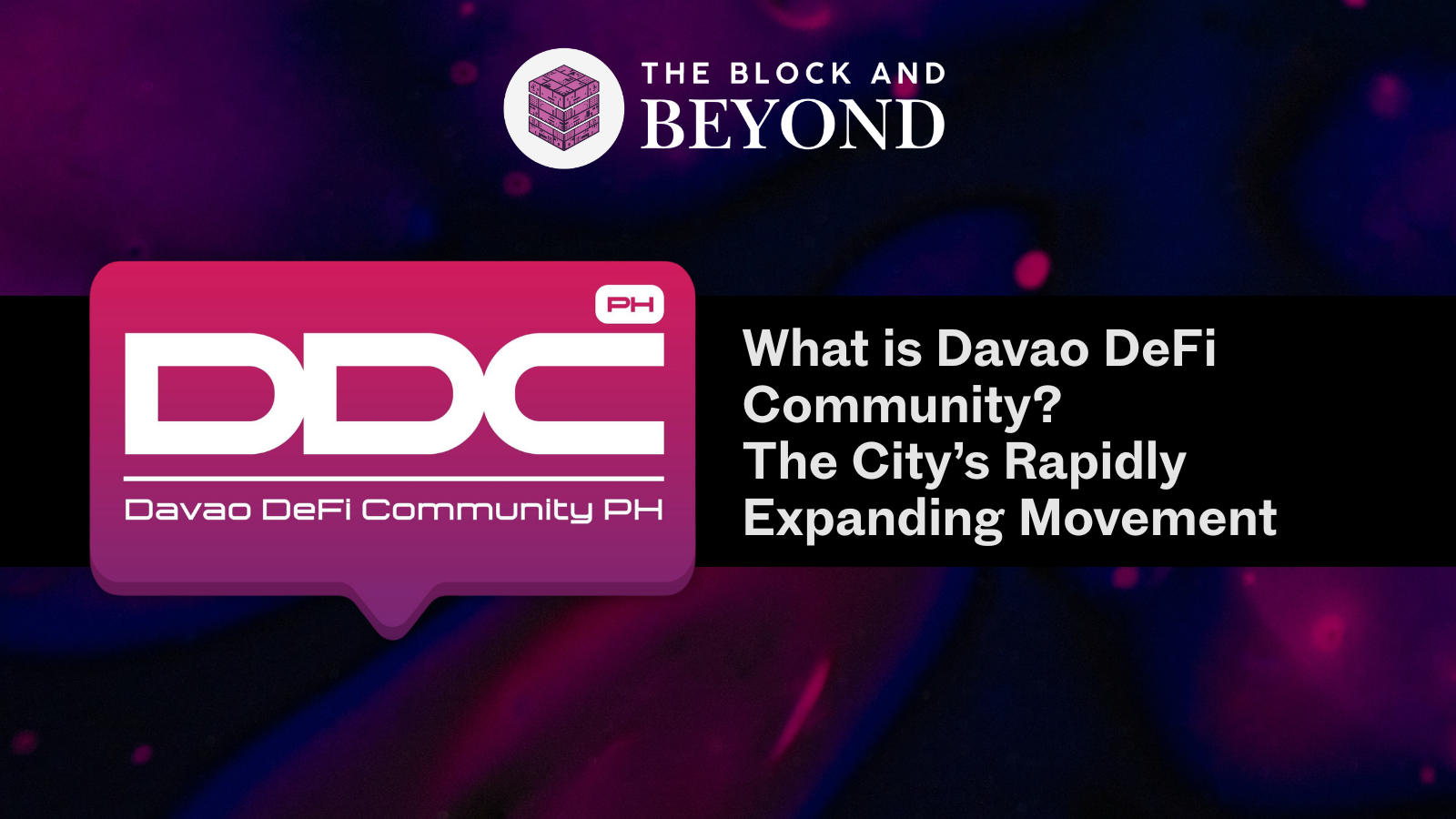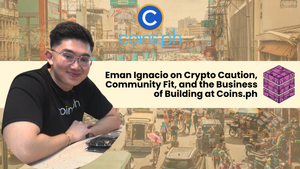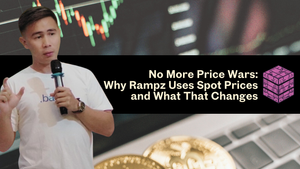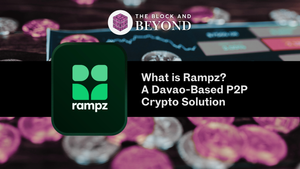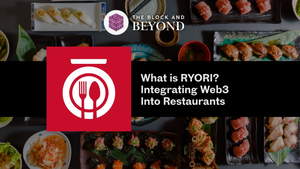Before the tech giants took notice, a small team in Davao was already laying the foundation for a Web3 revolution. What began as a quiet experiment is now inspiring a decentralized wave across the Philippines.
Davao isn’t just a beautiful city in the southern Philippines. It’s quickly becoming a hub for blockchain education, grassroots innovation, and real-world crypto use cases. At the center of it all is the Davao DeFi Community (DDC), a volunteer-driven initiative that has transformed from a passion project into one of the country’s most impactful Web3 ecosystems.
Founded in 2019 by IT professional-turned-Web3 advocate Ruben Lacumba, known as Rubz Comms, DDC gained momentum when co-founder Arthur Agullana joined in 2022 and later gained even more traction with the help of MJ Tangaan, the Community's SMM head, and Jurris Tolosa, head of Graphics and Web Dev. They’ve partnered with global protocols, organized meetups and developer bootcamps, and helped launch real blockchain startups, all while staying true to their mission: educate, empower, and build from the ground up.
But what exactly is the Davao DeFi Community? How does it work? And why are builders, students, and even local government units paying close attention?
What is Davao DeFi Community?
Davao DeFi Community (DDC) is a grassroots, non-profit initiative committed to promoting Web3 and decentralized finance (DeFi) adoption in Davao City and across Mindanao. It’s a regional movement built on education, collaboration, and open access to blockchain tools.
The idea was sparked in 2019 when Rubz, then a full-time IT administrator, was offered his salary in Bitcoin. That moment opened the floodgates to a deep dive into blockchain and DeFi. Inspired by the global communities he joined, Rubz left his 14-year IT career to pursue Web3 full-time and bring the movement home to Davao.
By 2022, the community held its first in-person event. That meetup, which Rubz and his team funded themselves, became the origin point of DDC. Since then, the group has organized a growing number of workshops, bootcamps, hackathons, and developer-focused camps designed to make Davao a center for Web3 innovation.
Today, DDC boasts a vibrant core team, a growing events committee, and hundreds of active participants, particularly among students and young developers.
How Does the Davao DeFi Community Work?
DDC operates with an agnostic, education-first approach. Instead of promoting tokens or price speculation, the group focuses on teaching the fundamentals—how blockchain works, what DeFi is, and how these technologies can solve real-world problems.
At the heart of this effort is a strong volunteer culture. As Arthur Agullana explains, the community’s core team started small, just five people, but emphasized alignment in values and commitment. Over time, they’ve built internal systems to scale, training new members and delegating responsibilities through well-structured committees.
On the technical side, DDC created DevCore, a dedicated developers’ branch that trains local Web2 developers to build smart contracts and Web3 applications. This led to the birth of RAMPS, a peer-to-peer on/off-ramp project that started at a local hackathon and has since received grants from Solana and Base.
Partnerships are also key to how DDC functions. The group collaborates with protocols across ecosystems including Ethereum, Cosmos, and Solana while maintaining neutrality. They host Twitter Spaces, weekly webcasts, developer training camps, and community meetups to foster both education and practical application.
How Does the Davao DeFi Community Benefit the Ecosystem?
The impact of DDC goes far beyond Davao.
First, it provides a model for regional blockchain adoption. By grounding itself in local language, culture, and face-to-face events, DDC reaches communities often overlooked in national or global campaigns. Their consistent in-person presence has attracted partnerships from national groups and attention from global protocols.
Second, they are building a talent pipeline. By mentoring aspiring developers, running hackathons, and onboarding students into real-world projects, DDC is creating future-ready Web3 professionals. Many are already producing viable startups. In a country where most tech opportunities are concentrated in Manila or Cebu, this decentralized talent development is game-changing.
Third, the community promotes financial literacy and responsible investing. Rubz and Arthur often emphasize the importance of understanding tech fundamentals over chasing hype. They warn beginners about “liquidity locusts” who jump from one high-APR project to another, and instead advocate for deeper research, smaller test investments, and long-term value creation.
Finally, DDC is sparking interest in public sector collaborations. From local universities to government innovation departments, the group has begun educating stakeholders about how blockchain can support transparency, inclusion, and digital infrastructure.
As Rubz puts it, “We can’t just stop in Davao. The goal is to build communities city by city, province by province.” With that mindset, DDC isn’t just expanding Web3 awareness. It’s shaping the future of digital empowerment across the Philippines.
To learn more or get involved, visit:
🌐 davaodefi.org
📘 Facebook: DavaoDeFiCommunity
🐦 X (Twitter): @DavaoDeFi







